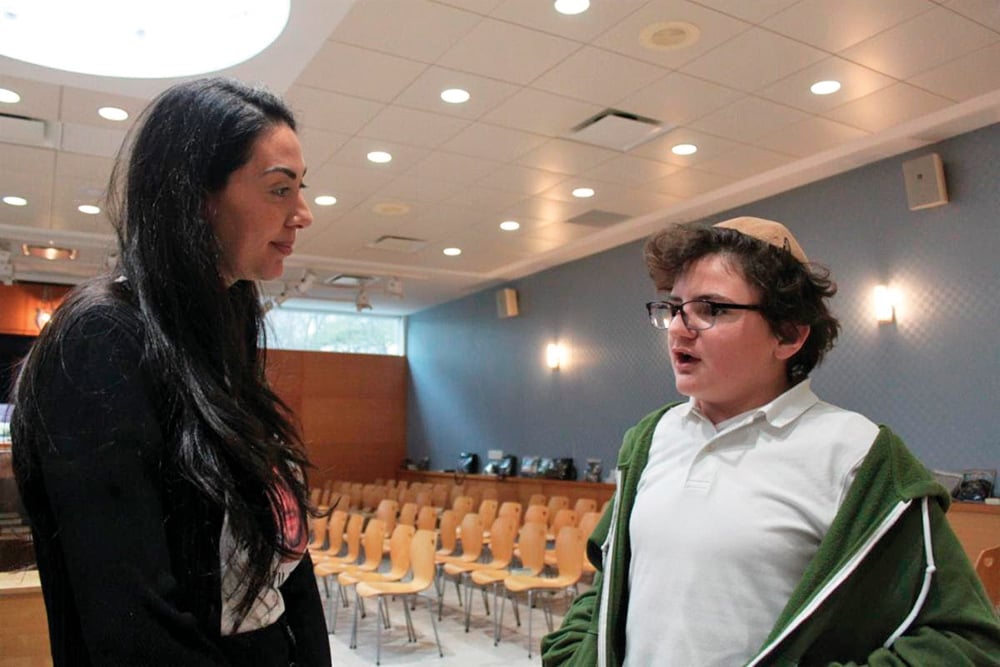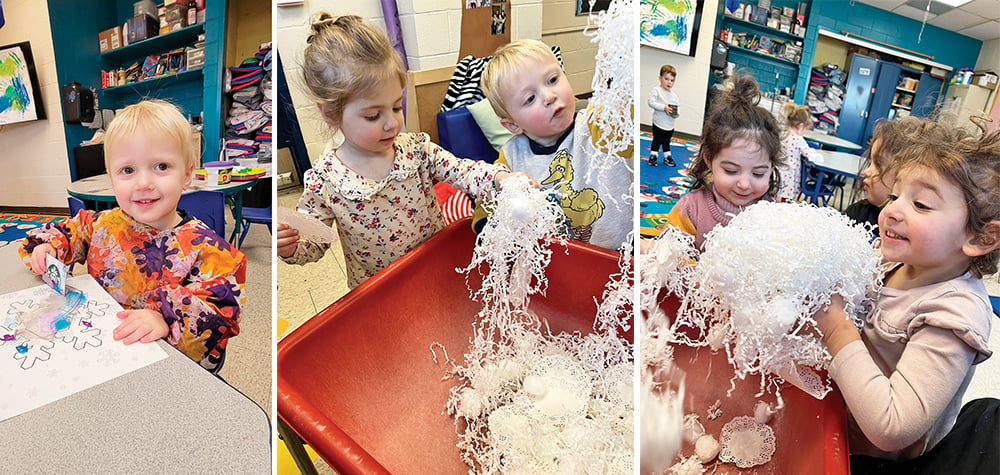Step #7
Part 2
קדושים תהיו…
“You shall be holy…”
דבר אל כל עדת בני ישראל ואמרת אלהם
קדושים תהיו כי קדוש אני ה’ אלקיכם.
Speak to all of Israel and say to them: You shall be holy—for holy am I, Hashem, your God.
(Vayikra 19:2)
Question to a fourth grade student: What do you think Step # 7 is about?
Answer: (Hashem says:) “I’m your role model. Be as close to Me as you can, and even though it’s impossible—still try.”
Understanding Holiness
While our rabbis have helped us understand the idea of being holy, it may still be difficult for some people—and certainly for children—to understand this concept.
One way of explaining the notion of being holy to children is to compare the word “holy” to being “special.” Rabbi Yosef Blau, mashgiach ruchani of Rabbi Isaac Elchanan Theological Seminary at Yeshiva University, offers a unique perspective. Being “special,” he says, is “the extraordinary way a Jew does the ordinary.” Students are asked to identify behaviors that almost all people do but that Jews do in a very special way. Among the best examples are the eating of kosher food and the observance of Shabbat. While all people eat food and many people observe a day of rest, no other people engage in these activities with the same level of observance and intensity as the Jewish people.
Perhaps the best example is the prohibition of speaking lashon hara—gossip. While many cultures have rules against gossip, the Chafetz Chaim teaches us that there are fully 31 mitzvot and aveirot connected with this form of speech.
A Jew is “holy” when he strives to live an ordinary life in an extraordinary way through the observance of the mitzvot.
Applying Step #7 in School
Nivul Peh
Perhaps the best way to learn how to perform Step #7 is to select a specific behavior commonly found among children and transform it into a process of “extraordinary” self-improvement. For this purpose we study the subject of ניבול פה—unrefined speech.
Definition: Nivul peh is speech that is characterized as profane or repulsive. It includes but is not restricted to the use of foul language.
Regarding the use of foul language or “dirty words,” parents become quite alarmed when they hear this form of speech from children. This reaction, while understandable, is quite misplaced and unrealistic.
Several years ago a parent asked me to discuss the use of foul language among some of her child’s fourth-grade classmates. I came to class armed with my lecture, ready to explain why young children often speak this way. I decided, however, to act like a teacher instead of a preacher, and asked them to tell me why children use these words. As the students began to share their answers, I started to record their responses. Sixty-four (!) reasons (and described situations) later, I put my clipboard down and thanked them for how much they had taught me about this compelling issue.
To sum up, the children made it clear that they hear inappropriate language everywhere! There were responses that emerged from their contact with society: television, videos, music, athletes, coaches, people in ball field stands, and scrawled on walls everywhere. There were reasons that were connected to peer influences: older siblings, influential friends, kids on the school bus, the desire to be cool, to be popular or simply to “fit in.”
There were several responses that might be called “situational/emotional”: getting hurt, being frustrated, being embarrassed, being frightened, being upset or angry, trying to hurt someone, losing something, etc. And lastly, it must be mentioned that children may hear foul language from the adults in their lives, including their parents.
In short, young children are no different from the vast majority of adults who use this language in precisely the same ways, and for the same reasons, on a constant basis. Naturally, just as with adults, these are reasons, not excuses. In the case of adults, they ought to know better. Regarding our children, they must be taught the difference between proper and improper speech.
As parents discuss this matter with their children, the following suggestions may be of help.
• Nivul peh can be seen as any use of language that could be said in a more refined way. When faced with a choice, it’s always better to use the more appropriate word.
• Nivul peh refers to any words a child feels he would not want his teacher or parent to hear him say.
• If one feels uncomfortable using a word, it should not be used.
• Chazal teach us the concept of shomea k’oneh: One who listens to lashon hara or nivul peh and remains silent (does not protest) shares the same guilt as the speaker.
• When parents hear children say “everybody does it,” it is not enough just to say, “Well, we don’t use that language in this house.” Instead, Step #7 teaches us to add various forms of the following sentiment: “In this house we aim our behavior higher.”
Finally, in the definitions of nivul peh, we use the phrase “profane language.” The opposite of “profane” is “holy.” At school, the most practical way a child can aim to be holy is to use proper speech. However, children often feel that if they behave in a way that seems to be better than the way others conduct themselves, they open themselves up to criticism or ridicule.
While these fears are certainly justified in some cases, it is important to realize that the students who respond that way are in the distinct minority. This “silent majority” of students in the class will admire such behavior and will more than likely learn to emulate it. Of course it is also helpful to remind children that Step #7—kedoshim tihiyu, being holy—is the most difficult step and, like any other difficult undertaking, we cannot expect to see perfection all at once. As the Torah teaches us, “v’halachta b’drachav”—You shall “walk in Hashem’s ways” (Devarim 28:9). This walk has no immediate destination; it is a lifelong journey.
A Final Thought: Who is Holy?
If people were asked to identify the holiest thing they know, most would probably say the Torah. Yet Chazal teach us that this is not so. The holiest thing in the world is each individual. Every person is of inestimable value.
Each of us is already created holy. Step #7 asks us to develop the behavior and attitude that complements our lofty status.
Stanley Fischman has served as the supervisor of general studies instruction at the Jewish Educational Center in Elizabeth, NJ. He was a yeshiva elementary principal for 35 years, and was also director of general studies at Ben Porat Yosef in Paramus. He recently celebrated his 50th anniversary of educating Jewish children. He is the author of “Seven Steps to Mentschhood: How to Help Your Child Become a Mentsch.”













